Byron Joyner, MD, MPA
This month, I’ve invited Hadar Duman, GME Director of Accreditation, to share her thoughts about the importance of the annual ACGME Resident and Faculty Surveys.
Byron Joyner, MD, MPA
Vice Dean for Graduate Medical Education, Designated Institutional Official

Hadar Duman, MHI Director of Accreditation
The 2023 ACGME Survey results are out! As an accreditation enthusiast, I am filled with excitement. The Surveys are an annual assessment of the experiences and opinions of residents, fellows, and faculty in ACGME-accredited programs. They serve as a vital tool for the ACGME to monitor and improve the quality of graduate medical education, expand the scope of trainees’ input in the accreditation process, and make annual accreditation and policy decisions based on systematic data collection and analysis. These Surveys also give us an opportunity to make changes based on the feedback we receive. The ACGME has been administrating the survey since 2004, and it was revised twice, in 2011 and 2020, to reflect current requirements. The Surveys’ importance has only increased over the years. This is especially true since the move to the Next Accreditation System (NAS) in 2011, when the frequency of site visits was reduced to once per decade. Absent of site visits, ACGME increased their reliance on survey data to make accreditation decisions.
However, despite the high stakes of the survey, the ACGME keeps the survey questions confidential. Programs do their best to prepare trainees and faculty so they understand the meaning of the questions and content areas, but the truth is that programs go at it blind. This leaves the task of interpreting the questions to survey takers and they may get it wrong at times.
For example, in a recent conversation I had at a national conference with a Program Director of a military-based program, I learned that, despite his best efforts, trainees often interpret “service” in questions related to the “Appropriate balance between education and patient care” item as their military service, and automatically respond that service takes precedent, leading to citations.
The 2023 ACGME survey window closed on April 9, 2023, and all 118 programs in our institution scheduled to take the survey reached the required 70% completion rate, thanks to the participants’ efforts. We are grateful to all of you who participated in the 2023 ACGME survey. Your valuable feedback enables us to improve the overall clinical learning environment in our institution. Thanks to you we can identify struggling programs and offer support through the Special Review process. Through which we have been able to advocate and obtain more Advanced Practice Providers (APPs) for services in need, address issues of faculty professionalism, enhance resources such as sleep and lactation facilities, and much more. Thanks to you, we can also identify institutional trends that we need to work on. A good example is the recent launch of the “Prioritizing Ourselves When Fatigued” refresher, an eLearning module we created in response to scoring below our expectations on the item “Instruction on minimizing effects of sleep deprivation”.
On the flip side of all of this, when the survey goes unfilled, it leaves the ACGME without the necessary data to make decisions, leading to extended citations, issuing of new citations, and denying program expansion requests.
As you consider your feedback and review this year’s survey results, keep in mind the following ways in which you can help improve your program and the quality of our learning environment:
- Take the ACGME survey every year. Your feedback is crucial!
- Advocate for change in your program. If you identify areas that need improvement, share your concerns with your program director, other leaders in your program or UW GME through our Report a Concern
- Get involved in your program’s quality improvement efforts. All programs are required to conduct an annual program evaluation. Get involved and help to make your program the best it can be.
Thank you for your commitment to the continuous improvement of graduate medical education. The data suggest we could not do it without you!
